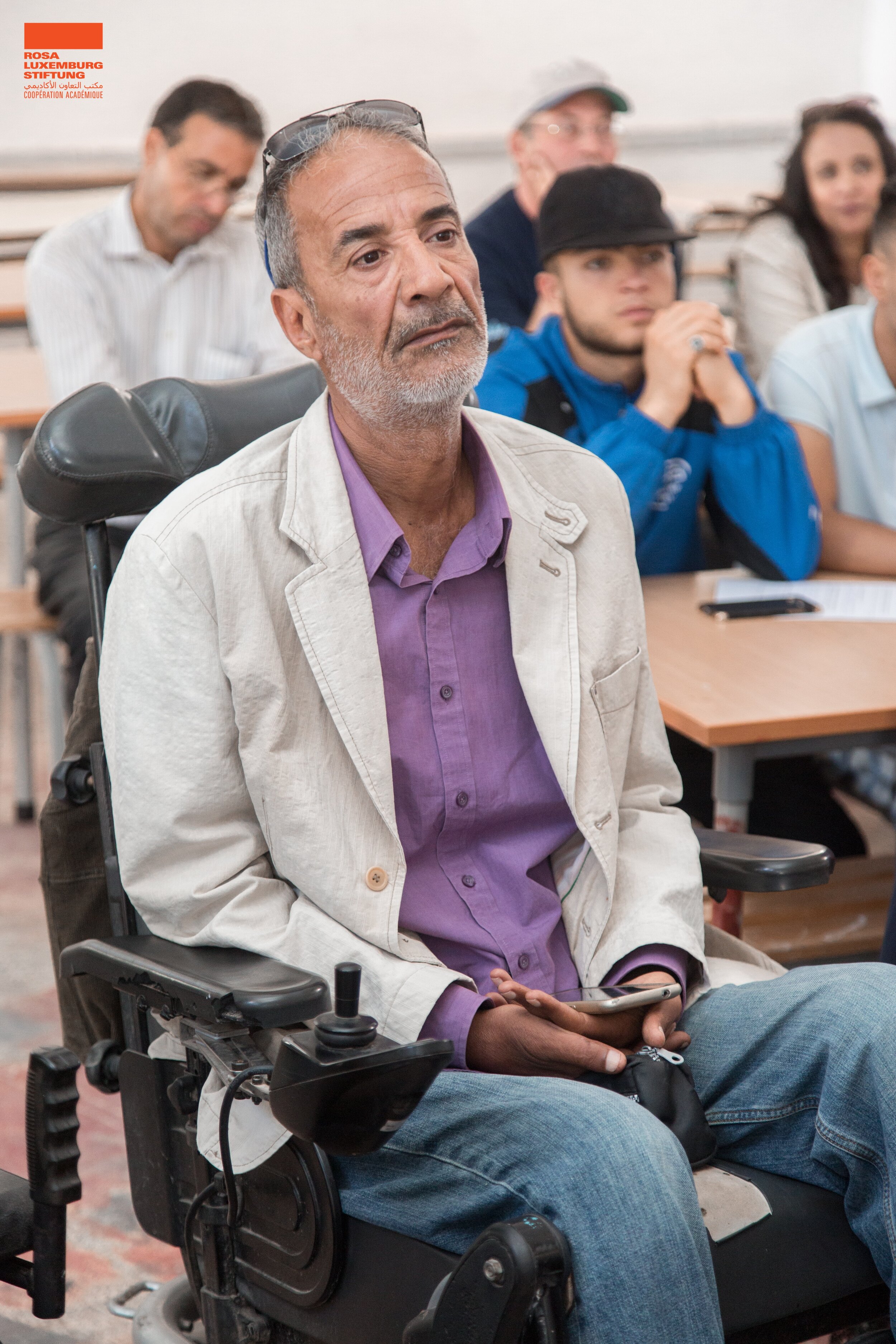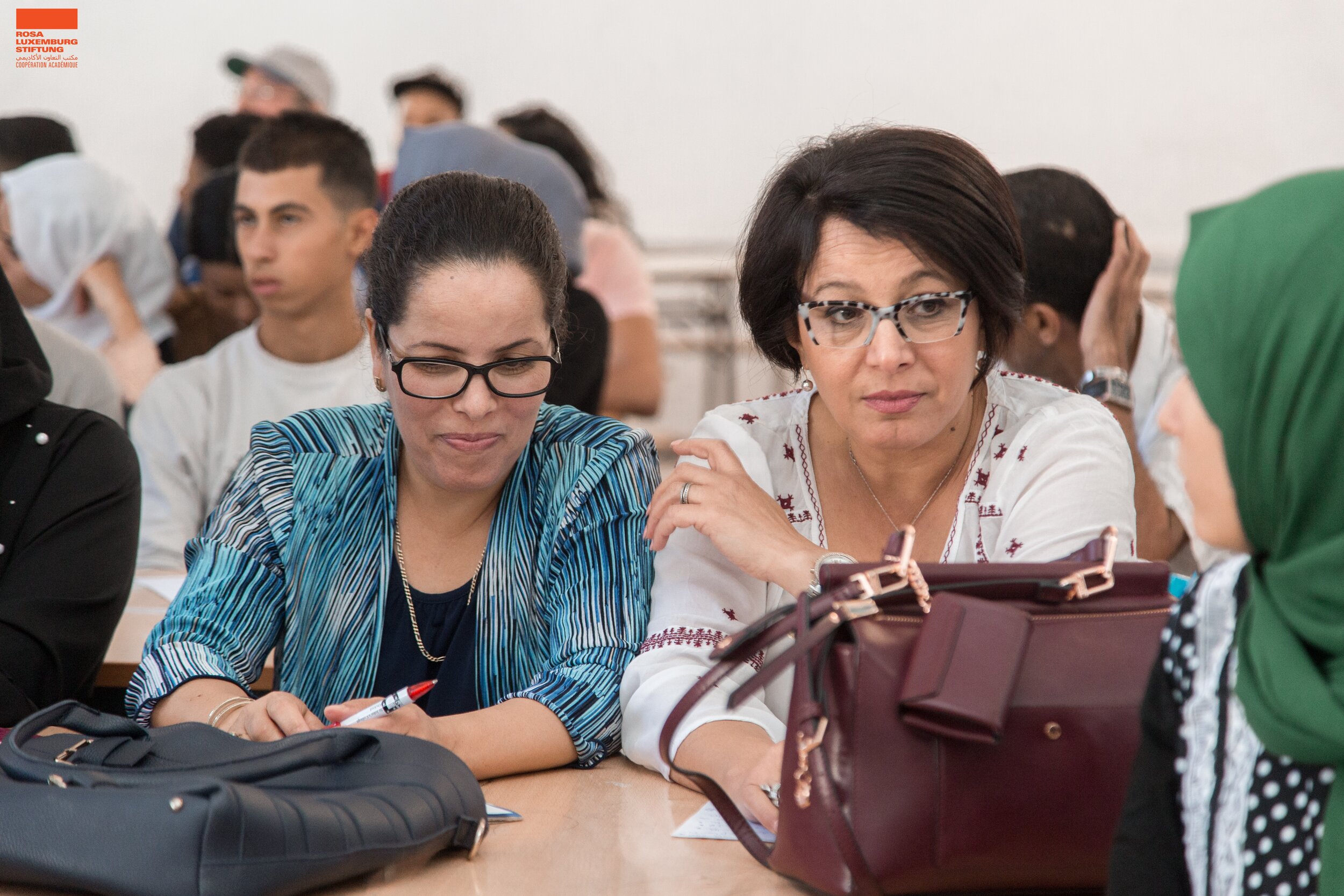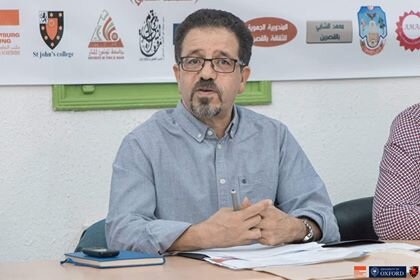Knowledge Justice
Participants in the literary competition of the Kasserine Knowledge Forum 2018
One of the most important challenges facing New Humanism and the post-Revolution university, both in the Middle East and across the Global South, is the disparity in knowledge production and in access to knowledge. A typical local university in Tunisia, for example, usually takes the form of a technical and non-research nucleus, which is not linked to the research structures and culture which are normally monopolized by major university centers. How can this disparity be addressed? Building on teh international conference held there, the prinicipal intervention into redressing this disparity in the local, Tunisian context was through the establishment of the Kasserine Knowledge Forum. This is a singular experiment in trying to bridge the gaps and break the barriers between local and global knowledges. The Forum received extensive coverage in local and national media. There is an interview with me at Radio Gafsa, another report on Radio Gafsa, a report on Mosaique FM, and on Radio Sabra FM.
The primary event of the Kasserine Forum was held in 2018 between 28-30 September, supported by a range of organisations including the Rosa Luxemburg Foundation, the University of Oxford, the University of Tunis al-Manar, ISAM, Amal Asscociation and the Regional Delegation of Culture in Kasserine. The Forum facilitated knowledge exchange between academics, activists, students and local citizens through seminars, presentations, guided visits, and debate. The event combined academic presentations designed for a mixed audience, highlighting and debating the work of local artists in theatre, sculpture, music and literature. The Forum also included a literary competition for young people. Themes covered included environment issues and development involving elected local officials and policy makers, as well as archaeology and development, in cooperation with the archaeology office and the local cultural authority.
Restoration of people’s interest in their own past and present, valuing the humanities as a discipline that stretches outside of the University and into the local community were central to this project. We chose three key areas for investigation: tourism, archaeology and ecology. Tourism is very important in the Tunisian economic and social context. However, under authoritarian rule a mass tourism economy had been managed centrally and served specific economic as well as propaganda agendas. Pre-revolution tourism severed Tunisians from their history and their immediate environment. It also prevented them from establishing meaningful connections with their past and affected the way they displayed and valorised it. This was particularly true of marginalized regions that had been left behind in postcolonial Tunisia, and it was from these regions that the revolution started. Indeed, my research into tourism in the context of Tozeur has shown how citizens of marginalized regions had no say in tourism and little stake in it. Projects like this one, which attempt to engage Tunisians with their own past and future are attempts to restore these severed links in the post-Revolutionary world.
Below, you can watch a short documentary video concerning the conference, in which I and my my project partner, Mohsen ElKhouni, explain the impetus and ideas behind the project and the relationship between the local and the global in knowledge production and circulations. The film is by Chedi Rebhi, Hamma Zourgui and Alaa Zourgui.
The theme for this event was knowledge between the local and the global, or rather an attempt to explore how we might reconcile global systems of knowledge production and dissemination with local contexts of both, knowledge production and consumption. In the forum, we had panels on the history of Kasserine, the architecture of the area, the geology of the region, artists, intellectuals and cultural figures from the region, questions of society in its local and national sense. Throughout, it was important to ensure that questions relating to global knowledge systems and knowledge production were anchored in the local context, in Kasserine, a marginalised city in Western Tunisia, cut off from the metropolitan focus of successive governments, and a key centre of the Revolution.
A full evaluation of the event’s impact, reach and content was led by a civil society association, Amal, which was trained for the purpose, and includes a survey designed in Oxford in collaboration with a Research Impact evaluator. The audience was varied in age, gender, and occupation. Many audience members participated in the evaluation process, which found that the Knowledge Forum had been extremely well received by participants, many of whom appreciated the opportunity to exchange knowledge and information in settings that were open and mutually enriching.
Institut Supérieur des Arts set Métiers (ISAM), one of the partners in the University and Society project












